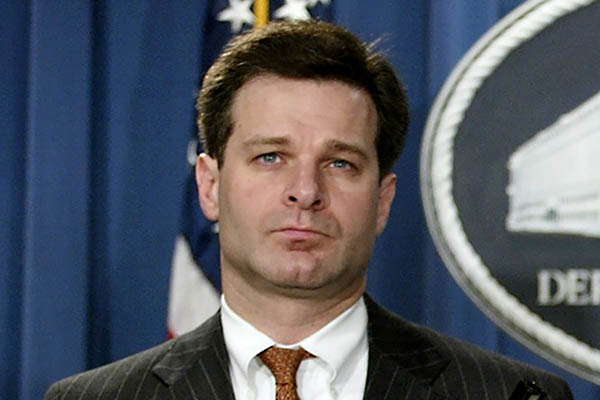
Stephen Jaffe, Jose Romero—AFP
Christopher Wray says he believes use of torture in interrogations is ineffective
U.S. President Donald Trump’s pick to lead the Federal Bureau of Investigation said on Wednesday he rejected the use of torture in interrogations, calling the practice illegal and ineffective.
Asked in a Senate confirmation hearing about his views on practices like waterboarding—inflicted by CIA and FBI interrogators on detainees in the years after the September 11, 2001 terror attacks—former Justice Department official Christopher Wray said he did not support them. “My view is that torture is wrong, it’s unacceptable, it’s illegal, and I think it’s ineffective,” Wray said.
He also said that he considered waterboarding, one of the most notorious interrogation techniques, to be “torture.”
Trump, who picked Wray to lead the FBI after firing James Comey in May, spoke positively about torture during last year’s presidential election campaign, suggesting he would bring back waterboarding. But since his election, Trump has said he would follow the advice of his top aides including Defense Secretary Jim Mattis, who opposes the practice.
Trump’s Attorney General Jeff Sessions said in his confirmation hearing in January that he recognizes the 2015 law passed by Congress that outlaws waterboarding and other forms of torture, a law he opposed when he was in the Senate. Wray’s role as a Justice Department assistant attorney general managing the criminal division in 2003-2005 raised questions over his handling of allegations of torture at the notorious U.S.-run Abu Ghraib prison in Iraq.
According to government documents published online by the American Civil Liberties Union, his name is mentioned in several communications at the time on torture cases. Wray told the Senate hearing that at the time his office had opened a number of torture investigations based on reports they had received, most of which would have been resolved after he left the department.
But he said he was “proud” of his role in prosecuting a U.S. contractor for the Central Intelligence Agency for torture that killed an Afghan detainee in 2003.
